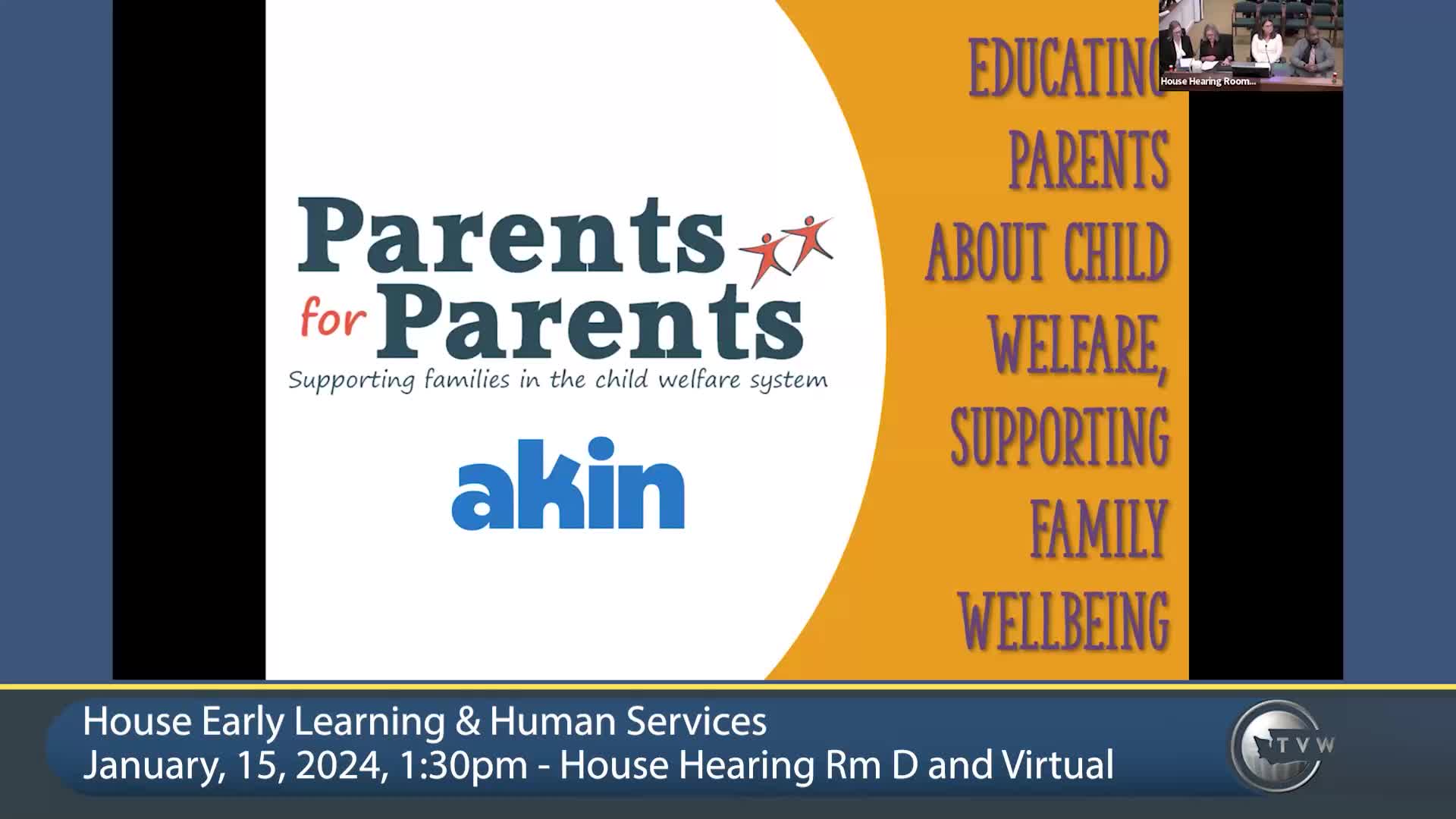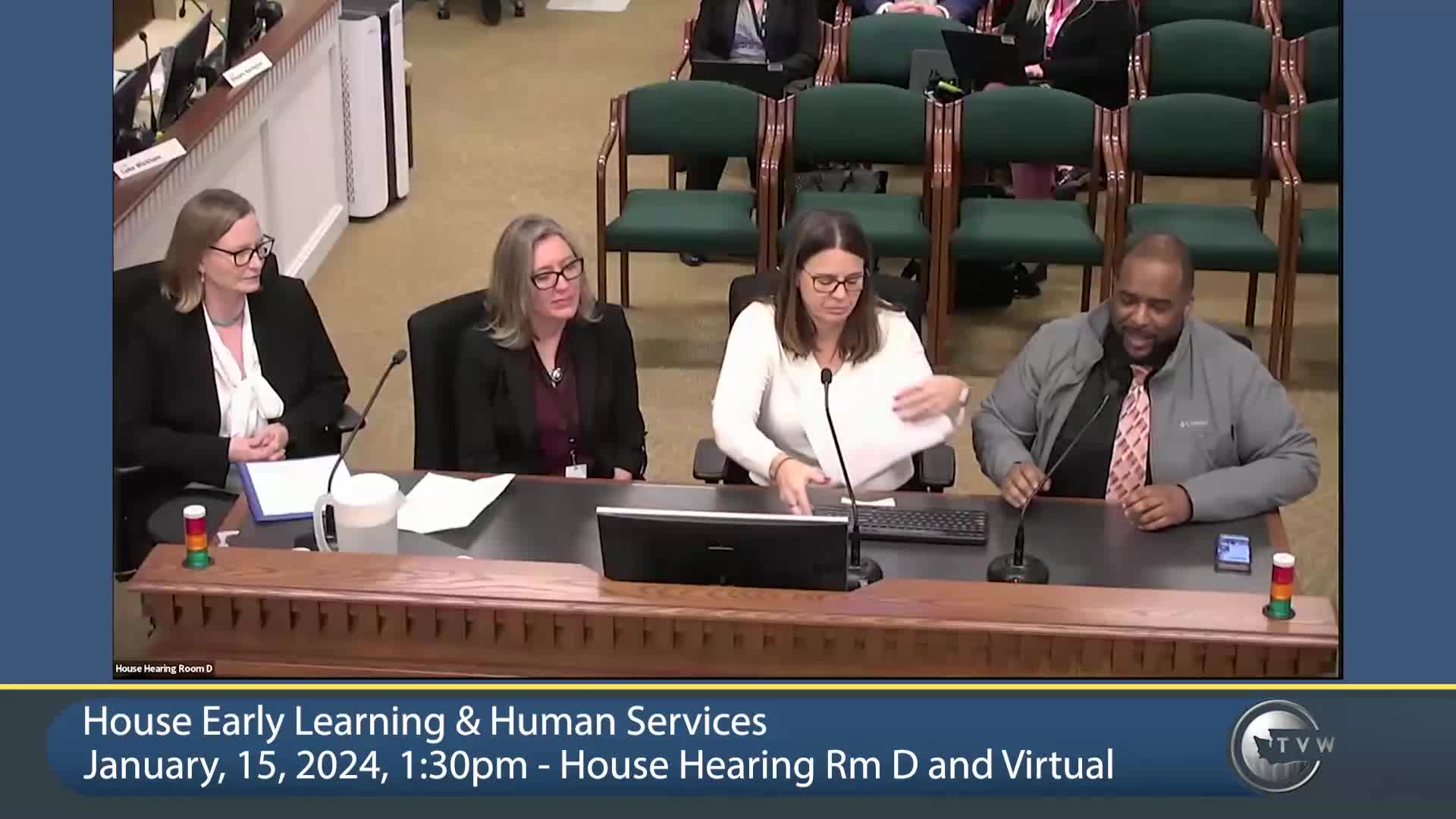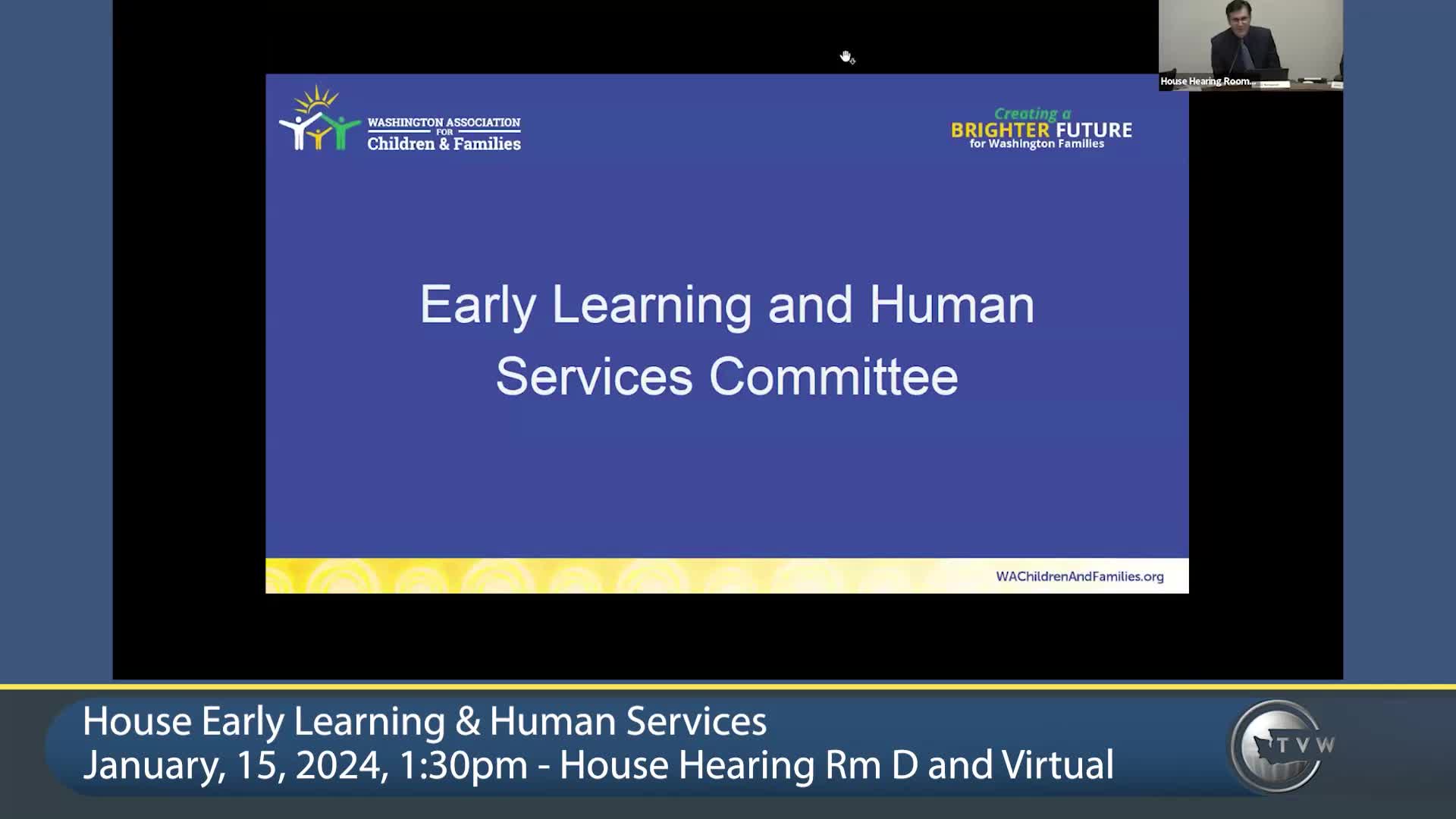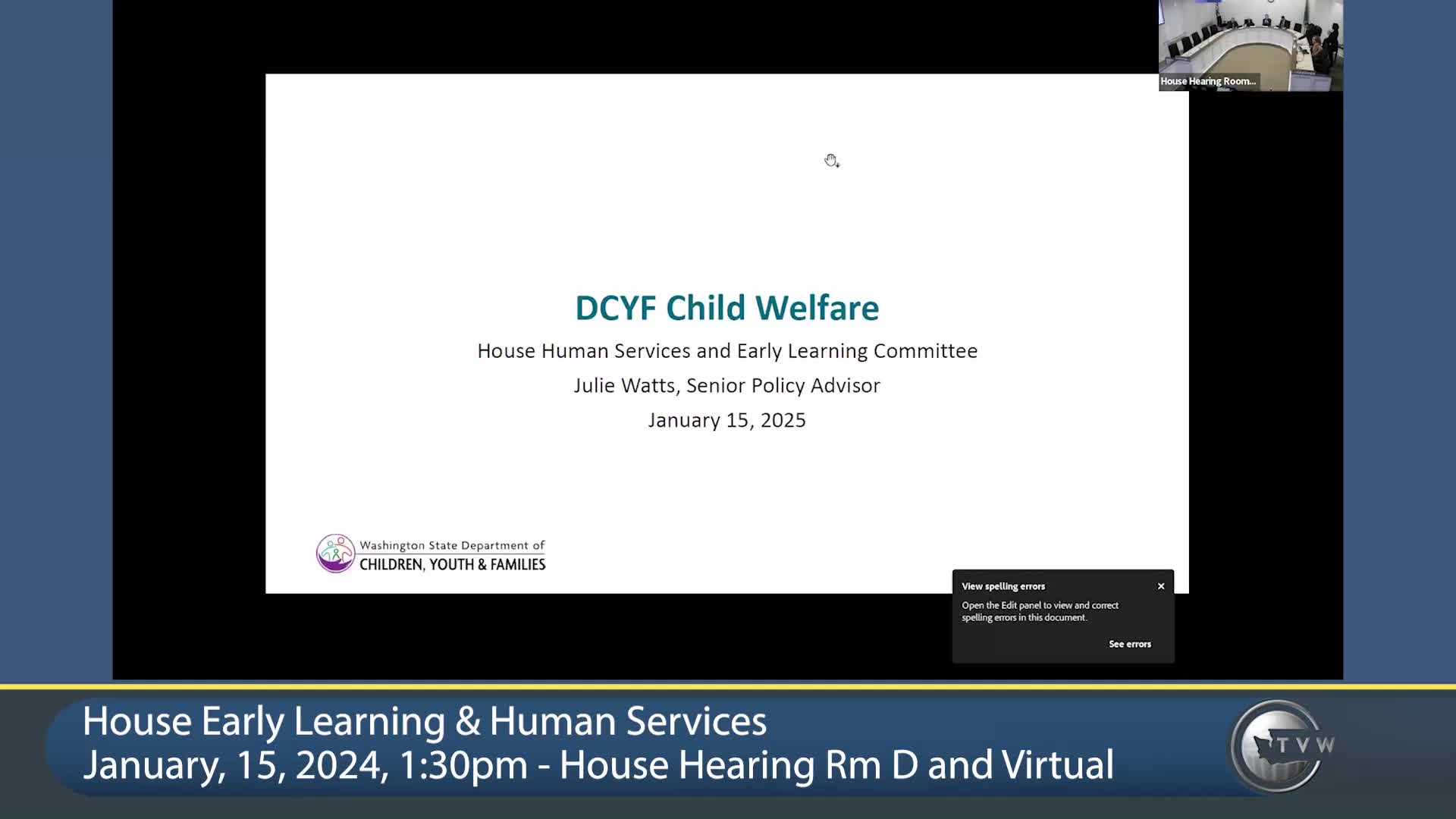Article not found
This article is no longer available. But don't worry—we've gathered other articles that discuss the same topic.

Parents for Parents program: evaluation shows higher reunification; state funding request included in governor's budget

Mockingbird Society urges expansion of family‑hub model, housing and higher EFC payments

Providers warn of liability‑insurance crisis and rate shortfalls for foster‑care services

